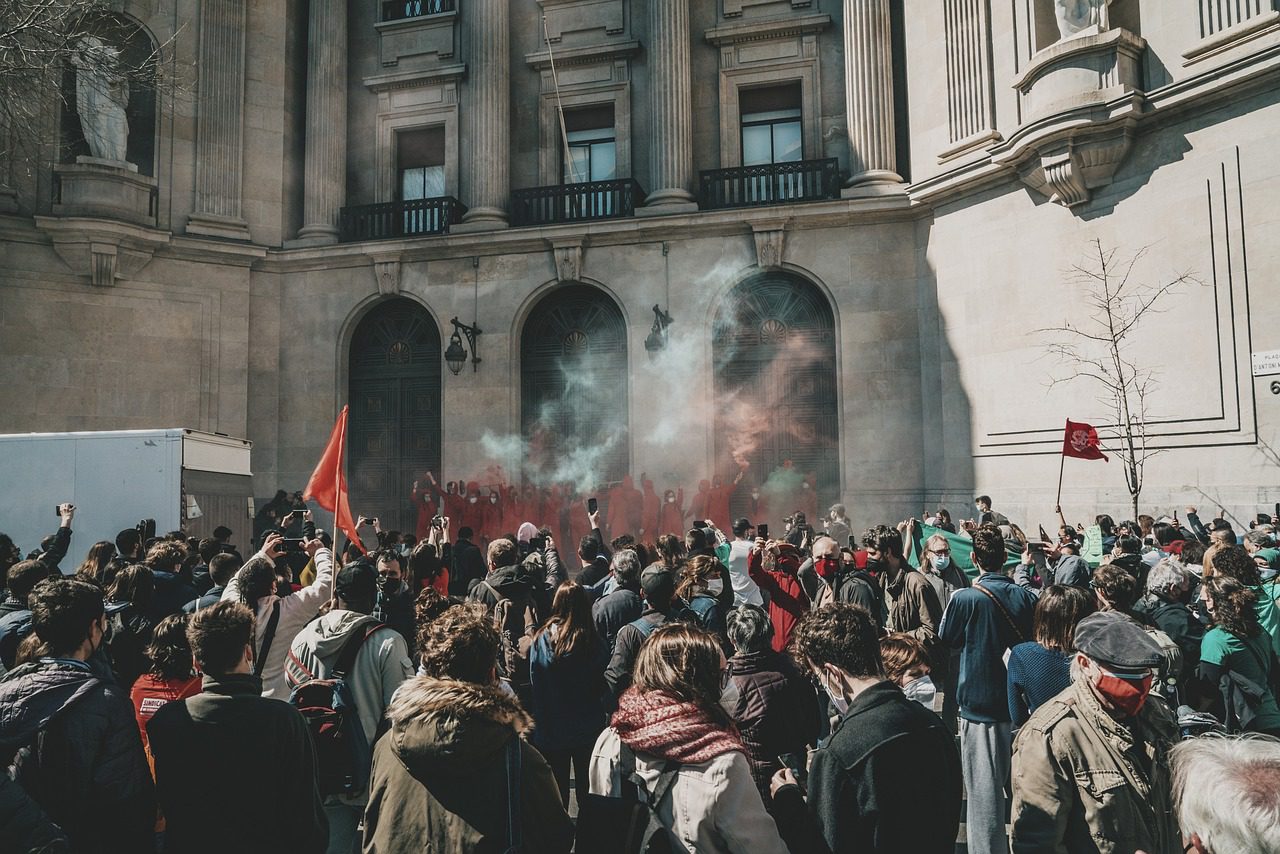
A wave of strikes and demonstrations is affecting several European countries against a backdrop of inflation and the energy crisis, reflecting a general deterioration in the social climate as winter approaches.
Belgium was hit by a general strike on Wednesday, November 9th, at the instigation of two of the country’s three main trade union organisations, which had called for a large-scale action back in June. Transportation was badly affected, particularly air transport, forcing Brussels airport to cancel up to 60% of flights. The strike also affected hospitals and supermarkets. On the menu of demands was the capping of energy prices, already partially implemented in France and Germany but leaving Belgium out, according to the unions.
France was also affected by a day of mobilisation on November 10th. The conflict originated in the demands of RATP, the Parisian transportation company, which has been in a deep hiring crisis for several months. Despite repeated advertising campaigns, the company is struggling to recruit bus and metro drivers because working conditions have deteriorated since the COVID-19 pandemic. RATP staff are suffering from the consequences of changes wanted by the socialist mayor of Paris, Anne Hidalgo, which seriously hinder traffic and make it difficult to operate the bus network—such as the explosion in security in the capital.
The Paris metro network was, therefore, virtually at a standstill in the capital on Thursday, November 10th, causing mayhem for families and workers. The strikers are demanding more jobs and pay rises for their jobs, which now hold very low appeal. Former Prime Minister Jean Castex had recently been appointed as the head of the RATP. The strike was thus a way to put pressure on him as he begins his mission.
At the request of the CGT, the main union, the strike was imitated by other trades elsewhere in France, to protest more widely against inflation and the energy crisis and to demand pay rises. Other transportation companies went on strike in major French cities, although participation was less thorough on the railways. Nurseries, schools, and school canteens, also hit hard by inflation, went on strike in part. According to INSEE figures, inflation in France is felt in food: 16.9% on fresh products, and 11.8% on food in general. The prospect of Emmanuel Macron’s resumption of pension reform is also encouraging mobilisation, as was the case in 2019. Just before the pandemic, the country was paralysed by heavy strikes lasting several weeks.
Greece also experienced large-scale strikes. According to the main Greek civil service union, mobilisation reached record levels compared to the social movements of previous years. Police reports recorded 16,000 demonstrators in Athens, causing outbreaks of violence in the Greek capital. At issue is the loss of purchasing power, which is approaching 20% for the average worker.
England could be the next country hit by strikes, with the National Health Service issuing a notice of action for the first time in its history to protest deteriorating working conditions that can affect patient care and to demand pay rises. The 300,000-strong Royal College of Nursing (RCN) has announced “industrial action,” “by the end of the year.” “Anger has become action—our members are saying enough is enough,” RCN General Secretary Pat Cullen said in a statement. “This action will be as much for patients as it is for nurses. Standards are falling too low.” The union is calling for a 5% pay rise above inflation, to compensate for the erosion in nurses’ purchasing power that has been observed over the past decade.
While the prospect of an end to the conflict in Ukraine is still not in sight, weariness and exasperation seem to be spreading throughout Western European societies.
